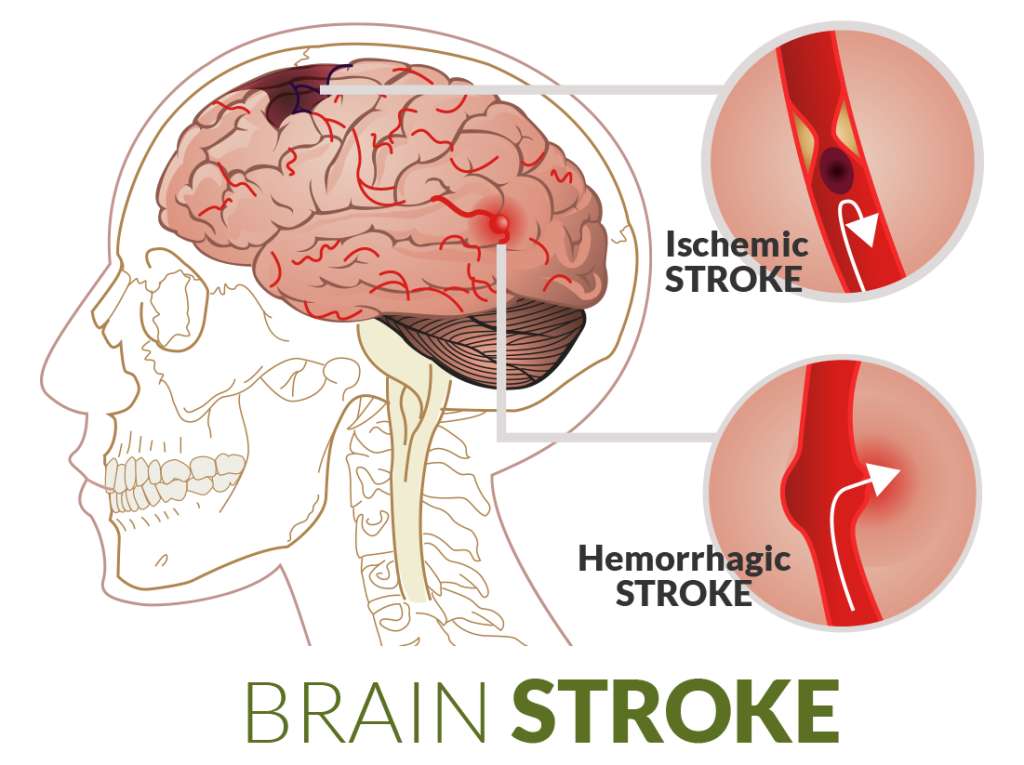Stroke in Children
health·@stanleyc-md·
0.000 HBDStroke in Children
A lot of people may be wondering if the title is a mistake but I assure you, it's most certainly not. Stroke can and does happen to children from preschool kids to teenagers and even to young adults. Each year, the number of children at risk of having strokes increase due to a number of factors.  Simply put, Stroke is brain damage (loss of neurological function) caused by problems with blood vessels (mostly arteries and sometimes veins) which lasts more than 24 hours. The problems with blood vessels could be a blockage or damage of the vessel itself. The blockage or damage of the blood vessels can occur anywhere in the pathway of blood supply from the heart to the brain. It could happen at the carotid or vertebral arteries (blood vessels at the front of the neck and back of the neck respectively) or more commonly much closer to the brain at the cerebral vessels.  When there is blockage of the arteries, it's called an Ischemic stroke. Due to the blockage, there won't be blood supply to the corresponding area of the brain. As the brain needs blood more than any other organ in the body and literally starts dying within few minutes, the part of the body or whatever function the damaged (or dead/dying) part of the brain takes care of is affected. Furthermore, if there is destruction or rupture of the vessels, there's is bleeding into the brain and some spaces within the brain called ventricles. This kind of stroke is called Hemorrhagic Stroke. **CAUSES OF STROKES IN CHILDREN** **Sickle Cell Disease**  This is a genetic disease that affects hemoglobin (the thing that carries Oxygen and makes the blood red) synthesis. It causes a disfiguration of the red blood cells, giving them a sickle shape. It is most commonly seen in Africans. Their risk of having strokes is about 400 times more than normal. Basically the abnormally shaped cells clump up and when they're big enough, block arteries in the body; in this case the arteries in the brain. **Clotting Disorders**  You may have heard of Hemophilia. This is a perfect example. It's a genetic disorder where there is interruption of the clotting process due to the absence of a clotting factor in the clotting cascade. This means the child would continue bleeding in the event of an injury. If this child were to have a minor damage to brain vessels (which may not be a problem in otherwise healthy children), there would be continuous bleeding into the brain, hence stroke. **Infections** Some infections can cause direct damage to the blood vessels in the brain for instance in bacterial meningitis where the bacteria causes inflammation of the thin layer of protective covering around the brain as well as well as small blood vessels around the area. HIV also causes stroke in adults as well as children in the later stages, especially AIDS. **Accidental Medication overdose** There are certain drugs which predispose a person to having hemorrhagic strokes for example blood thinners like warfarin, heparin, enoxaparin.  If a child accidentally takes this drug meant for an adult, it would make the child's blood unable to clot properly and if there's an injury, bleeding will persist for a life-threatening period of time. This is good if the bleeding happens to occur in the brain. **Congenital Heart Diseases** This one is not so common but in some congenital heart diseases, there is consistent low blood pressure and decreased blood supply to the brain due to inability of the heart to pump blood effectively to the brain. When this persists for a long time, it could cause neurological deficits, possibly stroke.  Other causes include Aneurysms, arteriovenous malformations, Vasculitis, brain tumors. Some of these causes are rare but not completely improbable. **SYMPTOMS OF STROKE** Weakness of one side of the body Difficulty with speech: this could be inability to understand spoken words, inability to form words or inability to arrange spoken words properly. Visual problems (issues with the eyes) Headaches, Vomiting Seizures Loss of balance and/or coordination Behavioral changes, extreme sleepiness Coma When symptoms are noticed, it is advised to seek medical attention immediately at a hospital. In fact, recovery depends on how fast or early treatment is commenced. Symptoms may not not be all of the above listed happening at once. It could just be one or two. Therefore whenever there's a health issue at all, it is recommended to visit the hospital. THANKS FOR READING YOU CAN LEAVE A COMMENT IF YOU HAVE ANY QUESTIONS. DON'T FORGET TO UPVOTE, RESTEEM AND FOLLOW FOR MORE Sources [Stroke Foundation](https://strokefoundation.org.au/About-Stroke/Types-of-stroke/Childhood-stroke) [Stroke](http://www.stroke.org/understand-stroke/impact-stroke/pediatric-stroke) [Child Neurology Foundation](http://www.childneurologyfoundation.org/disorders/stroke-in-children/)